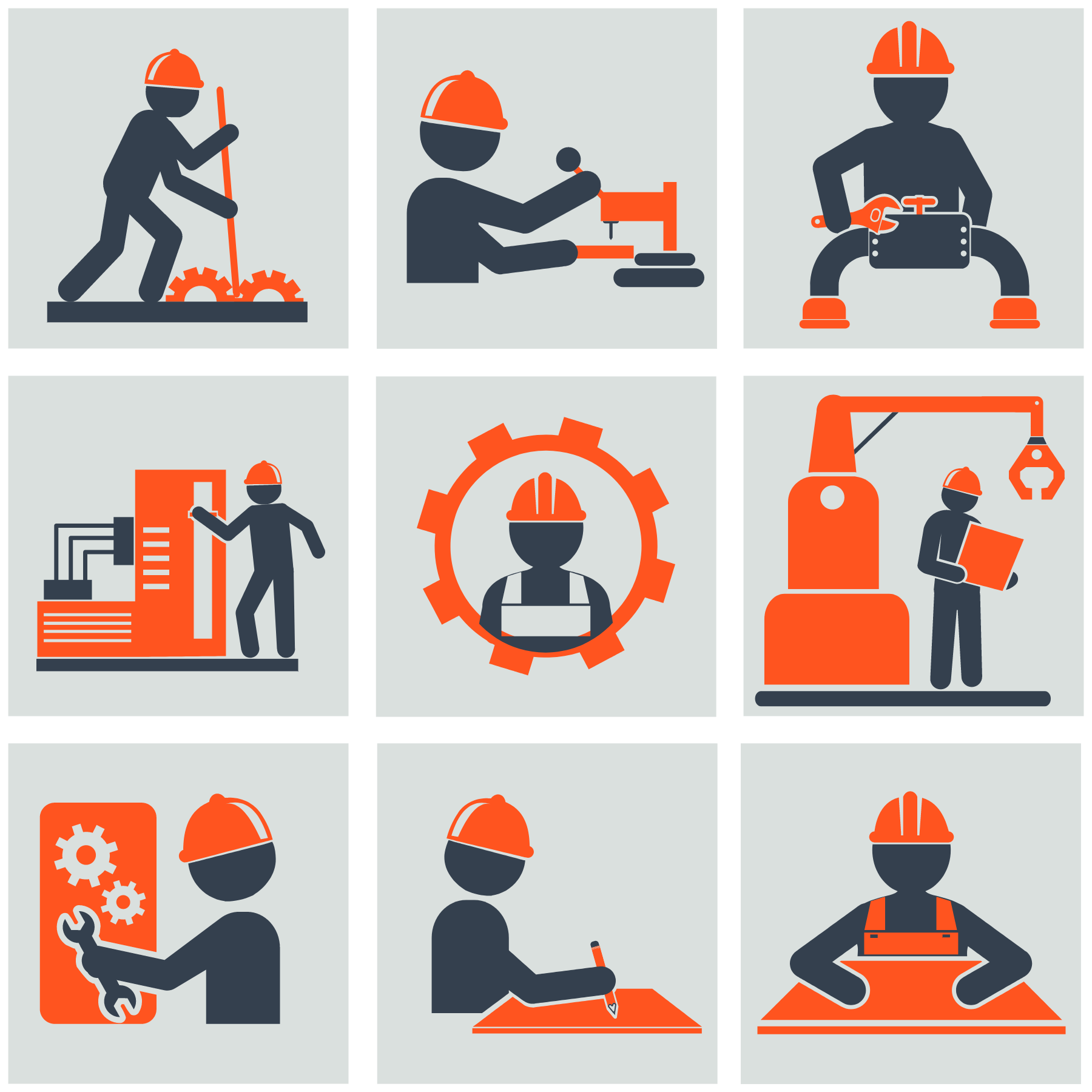Why successful companies invest in empowering employees on the shopfloor
In order to create a successful and future-oriented company, qualified and motivated employees are required.
The world of work is constantly changing due to rapid technological advances. New markets, business models, technologies and products are emerging and the barriers to market entry for competitors are also no longer as high as they once were due to digitization.
The resulting large selection of alternative products increases competitive pressure and prices have to be constantly adjusted.
In most industries, work content and processes are transforming into increasingly complex models. Customer needs are also increasingly changing. As a result, overall employee engagement is becoming more and more important for companies.
Management has to train and qualify its own employees for this digital transformation in order to be or remain successful on the market in the long term. In order to successfully face today’s challenges, the empowerment of employees is a good option.
What is employee empowerment?
The term empowerment refers to the empowerment or authorization of employees – in other words, the transfer of responsibility.
Empowerment in companies
Empowerment in the corporate context is understood as the transfer of responsibility from the supervisor to the employees with the help of various methods. As a result, employees gain increased opportunities for co-determination and autonomy. Hierarchical structures are reduced and, in the long term, this leads to a democratization of the company. The resulting reduction in bureaucracy also leads to an increase in performance and employee motivation.
Empowerment changes the previously rather passive role of employees, in which they carried out “orders” and were regarded as pure recipients of orders, into an increasingly active role that at the same time promotes individual career development.
Requirements for employee empowerment
In order to implement employee empowerment in the company, three key principles are required that enable employees to act and decide independently.
1. General access to information
Employees in all areas must have access to all relevant information in order to work independently. This exchange of information promotes teamwork and minimizes the perceived difference in status of the various positions. The open information policy shows staff that they are trusted and also encourages greater use of individual thinking, knowledge and skills.
2. Independence through planning for the future
In order to prevent employees from falling back into old habits of unautonomy, an accurate vision and plan of the company’s future should be drafted. This clarifies the purpose of the organization with all its associated components and the various responsibilities of individual employees can be shown.
3. Self-management of the teams
Teams are formed to take on management tasks. Employees should learn to work together in independent teams to make decisions and implement them. All employees are thus integrated into the responsibility process.
Dynamic implementation of all three key principles can maximize the potential of the workforce.
How do smart wearables support employee empowerment?
1. On-the-job training with the help of smart wearables
Step-by-step instructions allow new employees to get precise explanations from their smartwatches. The employee can complete these step by step and thus work independently and thus more efficiently right from the start.
This procedure ensures that no work step is forgotten.
2. Competence utilization of the employees
In order to be able to work efficiently, the individual competencies of the employees should be known. By using appropriate software, a profile can be created for each employee, in which their competencies and qualifications are stored. This ensures that the right employee is always called, depending on the application. This facilitates the coordination of employees and leads to the implementation of a more flexible production process. At the same time, employees can request support in real time and receive direct help from their colleagues. This saves time and money.
3. Distribution of information
Due to the permanent digital storage of all relevant data, all employees can access this data and information about the company or the production process and status at any time. At the same time, data protection is constantly maintained – it is individually adjustable which persons may access which information or data. This access enables employees to work independently and, if necessary, provide mutual assistance – this in turn strengthens team cohesion and promotes individual performance.
It is clear that the transfer of responsibility will become increasingly important in the future. As a result, employees will be able to play a role in shaping and determining the future of the company. This is accompanied by an increased willingness to perform and higher motivation. In addition, the ability to innovate within the company increases, as many ideas can be contributed by different employees. This keeps your company fit for the future!
Find out how you can increase efficiency on the shopfloor by empowering employees in a free initial consultation – feel free to contact us!
Do you want to know how to improve efficiency in your company?
Contact us now and receive comprehensive advice.
[hubspot portal=”7001161″ id=”c6455fcf-e396-470a-b110-05dc444a0c98″ type=”form”]
